French National Anthem: English Version, Original Lyrics And History
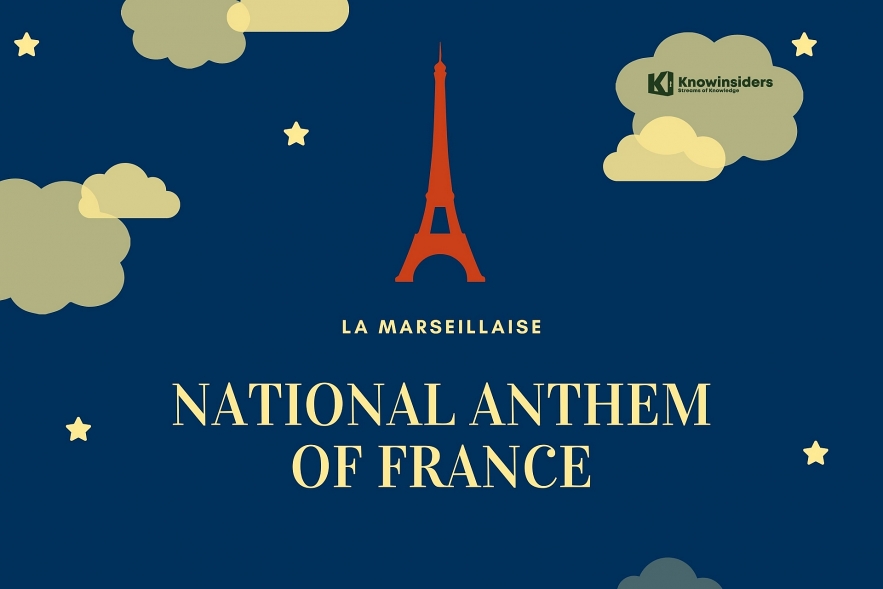 |
| French National Anthem - Photo KnowInsiders.com |
| Contents |
When was France’s National Anthem written?
Les Marseillais was written in 1792 by Claude Joseph Rouget de Lisle in Strasbourg after the declaration of war by France against Austria.
It was originally called "Chant de guerre pour l'Armée du Rhin" ("War Song for the Rhine Army").
The French National Convention adopted it as the country's national anthem in 1795.
The song's original title was "Chant de guerre pour l'Armée du Rhin" (Rhine Army War Hymn). It's a harsh tune that incited French resistance to the Prussian invasion that followed the revolution, therefore it was prohibited by Napoleon and much of the 19th century before finally being officially recognized in 1879.
First performed in April of 1792, the song made its way to Marseille with the army by early July. It's rousing subject was was an immediate success, and it was a battalion from marseille who sung the anthem in Paris later that year - hence the name Marseillaise was adopted.
There are frequent calls for the words of the anthem to be revised, given their 'inappropiateness' to a modern Europe.
| La Marseillaise was written in one night In addition to his military career, Rouget de Lisle dabbled in music. After receiving an order to compose a marching song from the mayor of Strasbourg, Rouget de Lisle worked tirelessly and finished the piece in a single night. He proceeded to sing in front of the mayor. The French artist Isidore Pils captured the scene in paint, forever capturing its significance. |
Where was France National Anthem composed?
The city of Strasbourg sits on the border between France and Germany. Straßburg has always been a part of France, including today and 1792. Yet, at various points in history, it has been a part of Germany and even its own free imperial city.
Once Louis XIV's French soldiers beat the Alsatian army in 1681, Strasbourg officially became part of France. The city was retaken by the Germans in 1871 following the Franco-Prussian War. As of the Armistice that ended World War I in 1918, Strasbourg was once again part of France. With the loss of France in 1940, it was briefly returned to the Germans during World War II. Since then, it has continued to be spoken only in French.
Today, Strasbourg is a cultural melting pot of German and French influences and a wonderful spot to spend the holiday season.
| La Marseillaise is named after the soldiers from Marseilles who first sang the anthem Now that you know that La Marseillaise was written in Strasbourg, you may be wondering why it’s named after Marseille instead of Strasbourg. Fair question! The national anthem is called La Marseillaise because it was a hit with volunteer soldiers marching from Marseille to Paris to fight for their country. |
| Napoleon banned La Marseillaise As soon as he took power in 1804, Napoleon Bonaparte set out to revolutionize France. The French Empire was always at war during his reign because of his fixation with military glory. He was also well-known for being a control freak, so his decision to alter the national anthem doesn't come as much of a surprise to me. During Napoleon's rule, "Veillons au salut de l'Empire" (or "Let us Look to the Salvation of the Empire" in English) was the French national song. |
History of France's National Anthem
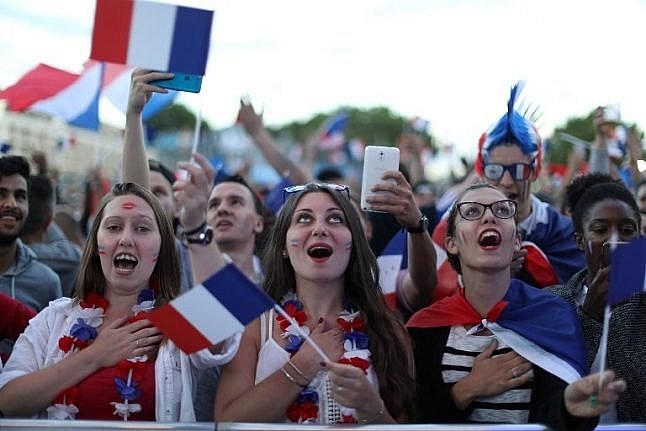 |
| History of France's National Anthem - Photo: The Local France |
The mayor of Strasbourg (where Rouget de Lisle was quartered at the time), P.F. Dietrich, voiced the necessity for a marching hymn for the French troops after France declared war on Austria on April 20, 1792. "La Marseillaise" was Rouget de Lisle's response to this request. The anthem's popularity with volunteer army battalions from Marseille led to it being renamed "La Marseillaise" from its original title, "Chant de guerre de l'armée du Rhin" ("Battle Song of the Army of the Rhine"). When sung during Revolutionary public events, this stirring and beautiful melody left a profound influence on everyone in attendance. On July 14, 1795, the Convention officially recognized it as the French national anthem by passing a decree to that effect. Since it was associated with the Revolution, Napoleon and Louis XVIII both banned "La Marseillaise" during their respective reigns. During the July Revolution in 1830, it was legalized, only to be outlawed again by Napoleon III and remain so until 1879.
There were just six stanzas in the first version of "La Marseillaise," but a seventh stanza was added later (and wasn't composed by Rouget de Lisle). In public settings, just the first and sixth verses of the anthem are typically sung. Here are the original Hebrew verses, followed by my English translation.
What are the Full Lyrics to La Marseillaise?
Bearing in mind that the lyrics reflect the invasion of France by Prussian and Austrian armies, the text is pretty violent. The full version features seven verses – but at most sporting events, teams tend to sing just the first verse and chorus:
France's National Anthem in Original French
Allons enfants de la Patrie
Le jour de gloire est arrivé !
Contre nous de la tyrannie
L'étendard sanglant est levé
Entendez-vous dans nos campagnes
Mugir ces féroces soldats?
Ils viennent jusque dans vos bras.
Égorger vos fils, vos compagnes!
Aux armes citoyens
Formez vos bataillons
Marchons, marchons
Qu'un sang impur
Abreuve nos sillons
Que veut cette horde d'esclaves
De traîtres, de rois conjurés?
Pour qui ces ignobles entraves
Ces fers dès longtemps préparés?
Français, pour nous, ah! quel outrage
Quels transports il doit exciter?
C'est nous qu'on ose méditer
De rendre à l'antique esclavage!
Quoi ces cohortes étrangères!
Feraient la loi dans nos foyers!
Quoi! ces phalanges mercenaires
Terrasseraient nos fils guerriers!
Grand Dieu! par des mains enchaînées
Nos fronts sous le joug se ploieraient
De vils despotes deviendraient
Les maîtres des destinées.
Tremblez, tyrans et vous perfides
L'opprobre de tous les partis
Tremblez! vos projets parricides
Vont enfin recevoir leurs prix!
Tout est soldat pour vous combattre
S'ils tombent, nos jeunes héros
La France en produit de nouveaux,
Contre vous tout prêts à se battre.
Français, en guerriers magnanimes
Portez ou retenez vos coups!
Épargnez ces tristes victimes
À regret s'armant contre nous
Mais ces despotes sanguinaires
Mais ces complices de Bouillé
Tous ces tigres qui, sans pitié
Déchirent le sein de leur mère!
Nous entrerons dans la carrière
Quand nos aînés n'y seront plus
Nous y trouverons leur poussière
Et la trace de leurs vertus
Bien moins jaloux de leur survivre
Que de partager leur cercueil
Nous aurons le sublime orgueil
De les venger ou de les suivre!
Amour sacré de la Patrie
Conduis, soutiens nos bras vengeurs
Liberté, Liberté chérie
Combats avec tes défenseurs!
Sous nos drapeaux, que la victoire
Accoure à tes mâles accents
Que tes ennemis expirants
Voient ton triomphe et notre gloire!
France's National Anthem in English translation
Arise children of the fatherland
The day of glory has arrived
Against us tyranny's
Bloody standard is raised
Listen to the sound in the fields
The howling of these fearsome soldiers
They are coming into our midst
To cut the throats of your sons and consorts
To arms citizens
Form you battalions
March, march
Let impure blood
Water our furrows
What do they want this horde of slaves
Of traitors and conspiratorial kings?
For whom these vile chains
These long-prepared irons?
Frenchmen, for us, ah! What outrage
What methods must be taken?
It is we they dare plan
To return to the old slavery!
What! These foreign cohorts!
They would make laws in our courts!
What! These mercenary phalanxes
Would cut down our warrior sons
Good Lord! By chained hands
Our brow would yield under the yoke
The vile despots would have themselves be
The masters of destiny
Tremble, tyrants and traitors
The shame of all good men
Tremble! Your parricidal schemes
Will receive their just reward
Against you we are all soldiers
If they fall, our young heros
France will bear new ones
Ready to join the fight against you
Frenchmen, as magnanimous warriors
Bear or hold back your blows
Spare these sad victims
Who with regret are taking up arms against us
But not these bloody despots
These accomplices of Bouillz
All these tigers who pitilessly
Are ripping open their mothers' breasts
We shall enter into the pit
When our elders will no longer be there
There we shall find their ashes
And the mark of their virtues
We are much less jealous of surviving them
Than of sharing their coffins
We shall have the sublime pride
Of avenging or joining them
Sacred Love for the Fatherland
Lead and support our avenging arms
Liberty, cherished liberty
Join the struggle with your defenders
Under our flags, let victory
Hasten to you virile force
So that in death your enemies
See your triumph and our glory!
Symbols Of France
Coat of Arms France
Although it is not a coat of arms recognized by law, France's present emblem has been a symbol of the country since 1953. It was first adopted by the French Foreign Ministry in 1912 as a sign for use by diplomatic and consular posts and is now printed on the cover of all French passports. Since it does not conform to heraldic standards, it is more accurately called an emblem than a coat of arms. The insignia is a broad shield with a lion's head at one end and an eagle's head at the other, with the initials "RF" in the center to represent the French Republic (French Republic). The fasces represents justice, the laurel branch represents the Republic's triumph, and the oak branch represents perpetuity or wisdom (the bundle of rods and an axe, carried by Roman lictors).
The Currency Of France Is The Euro
It's no secret that France has a booming economy. According to 2017 nominal figures collected by the International Monetary Fund, it has the world's sixth-largest economy. In terms of PPP, France is the tenth-richest country in the world. Germany has the largest economy in Europe, but the UK is not far behind in second place. French citizens have all the benefits of being in a European Union country. Hence, the Euro has been adopted as the official currency in line with the rest of the European Union. France was an early adopter of the euro in 2002, and the euro was used alongside the French franc. The Euro is commonly represented by the sign €.
Coins
The euro is divided into euro cents, with 100 cents as the smallest denomination. Euro coins are available in several denominations, including 1c, 2c, 5c, 10c, 20, 50c, €1, and €2. All the coins have similar features, with the only difference being the denomination.
Banknotes
Euro banknotes have similar designs on both sides and are issued in the denomination of €5, €10, €20, €50, €100, € 200, and €500. However, each note has its color, with each dedicated to an artistic period in the history of European architecture. Other features include gateways or windows on observe and bridges on the reverse side.
National Flag
According to the news, in November 2021, French President Emmanuel Macron changed the flag's color to restore it to its pre-revolutionary state.
Even though the transition was made public around a year ago, it seems to have escaped widespread notice until recently. A government official informed the AFP news agency that Macron has been using the new flag as a backdrop for his speeches since at least 2018.
Blue, white, and red are arranged vertically to form the French tricolor. The new design features a darker shade of blue than the sky blue that has been used for the past four decades.
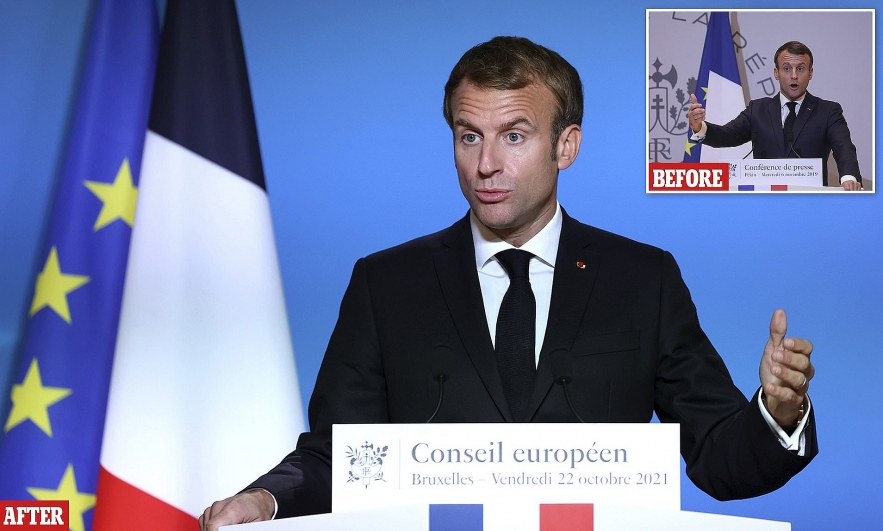 |
| Photo Daily Mail |
“The President of the Republic (Emmanuel Macron) has chosen for the tricolour flags that adorn the Élysée Palace the navy blue that evokes the imagination of the Volunteers of Year II, the Poilus of 1914 and the Compagnons de la Libération of Free France,” the Presidency said, according to an AFP report.
“It is also the blue of the flag that has always flown under the Arc de Triomphe every (Armistice Day) 11 November,” it added.
As a result of the French Revolution in the 1970s, the French government adopted a lighter blue for the flag. The lighter color is known as Marian Blue (bleu marine), and it is a near match to the blue used in the EU flag. Macron's decision to alter the color scheme has been interpreted by some as a sign of deteriorating relations between France and the European Union.
7 Names for France
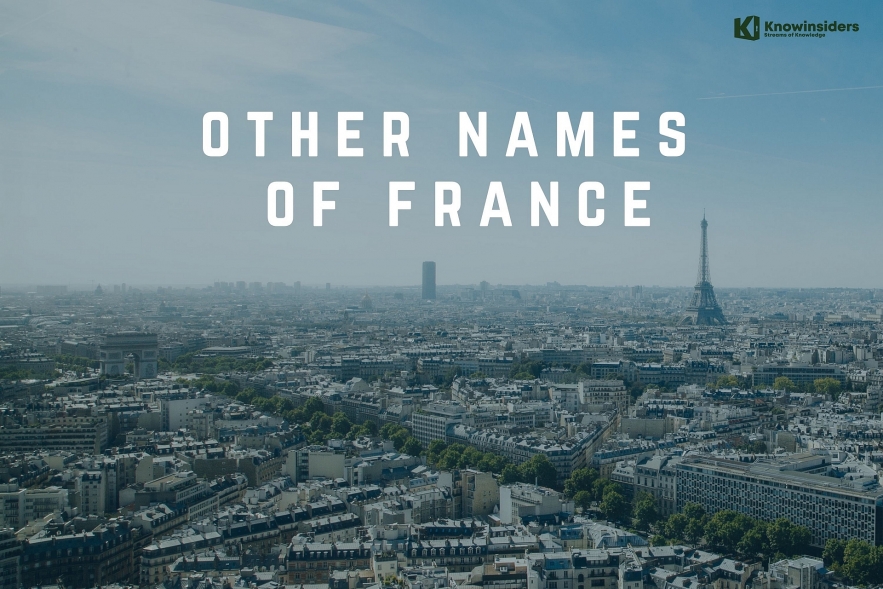 |
| Photo KnowInsiders |
Have you ever noticed that “France” is called by several different names? Learn the various synonyms and the exact meanings of each one.
1) la France
France is the most common, general term and indicates the entire country, including the DOM-TOM (see below).
Vive la France !
2) la République
“The Republic,” the most patriotic term, refers to France by way of its republican constitution.
Variation: la République française is the official name of the country and is commonly abbreviated as RF.
Vive la République !
3) l’Hexagone
The nickname “Hexagon” refers to the shape of the mainland’s borders and so does not include the DOM-TOM, though curiously it does include Corsica.
4) la Métropole
“Metropolis,” synonymous with l’Hexagone. This is the term inhabitants of the DOM-TOM tend to use when referring to the mainland.
5) la France métropolitaine
“Metropolitan France,” synonymous with la Métropole and l’Hexagone.
6) la France continentale
“Continental France” indicates just the actual hexagon: metropolitan France minus Corsica.
7) la France profonde
“Deep France” refers to rural France: the villages and provincial life found outside of the cities.
Patriotic Expressions in French
1) Liberté, Égalité, Fraternité
French motto
2) Vive la France !
An exclamative cheer or rallying cry
(In France, vive la France is almost always preceded by vive la République)
3) Impossible n’est pas français
Patriotic expression – or is it?
4) L’État, c’est moi
"I am the State"
King Louis XIV, 13 April 1655
5) Servir la patrie est une moitié du devoir, servir l’humanité est l’autre moitié.
"Serving the homeland is half of duty, serving humanity is the other half."
Victor Hugo, Mes fils (1874)
6) Au fond de tout patriotisme, il y a la guerre : voilà pourquoi je ne suis point patriote.
"At the heart of all patriotism, there is war: that’s why I’m not a patriot."
Jules Renard, Journal (1899)
7) Écrire proprement sa langue est une des formes du patriotisme.
"Writing one’s language correctly is one of the forms of patriotism."
Lucie Delarue-Mardrus, La Liberté (1933)
8) Le véritable lieu de naissance est celui où l’on a porté pour la première fois un coup d’œil intelligent sur soi-même : mes premières patries ont été des livres.
"The real place of birth is the one where you first took an intelligent look at yourself: my first homelands were books."
Marguerite Yourcenar, Mémoires d’Hadrien (1951)
9) La France ne peut être la France sans la grandeur.
"France cannot be France without greatness."
Charles de Gaulle, Mémoires de guerre (1954)
10) [L]a fusion des races a commencé dès les âges préhistoriques. Le peuple français est un composé. C’est mieux qu’une race. C’est une nation.
"The fusion of races began in prehistoric times. The French people are a composite. That’s better than a race. It’s a nation."
Jacques Bainville, Histoire de France (1924)
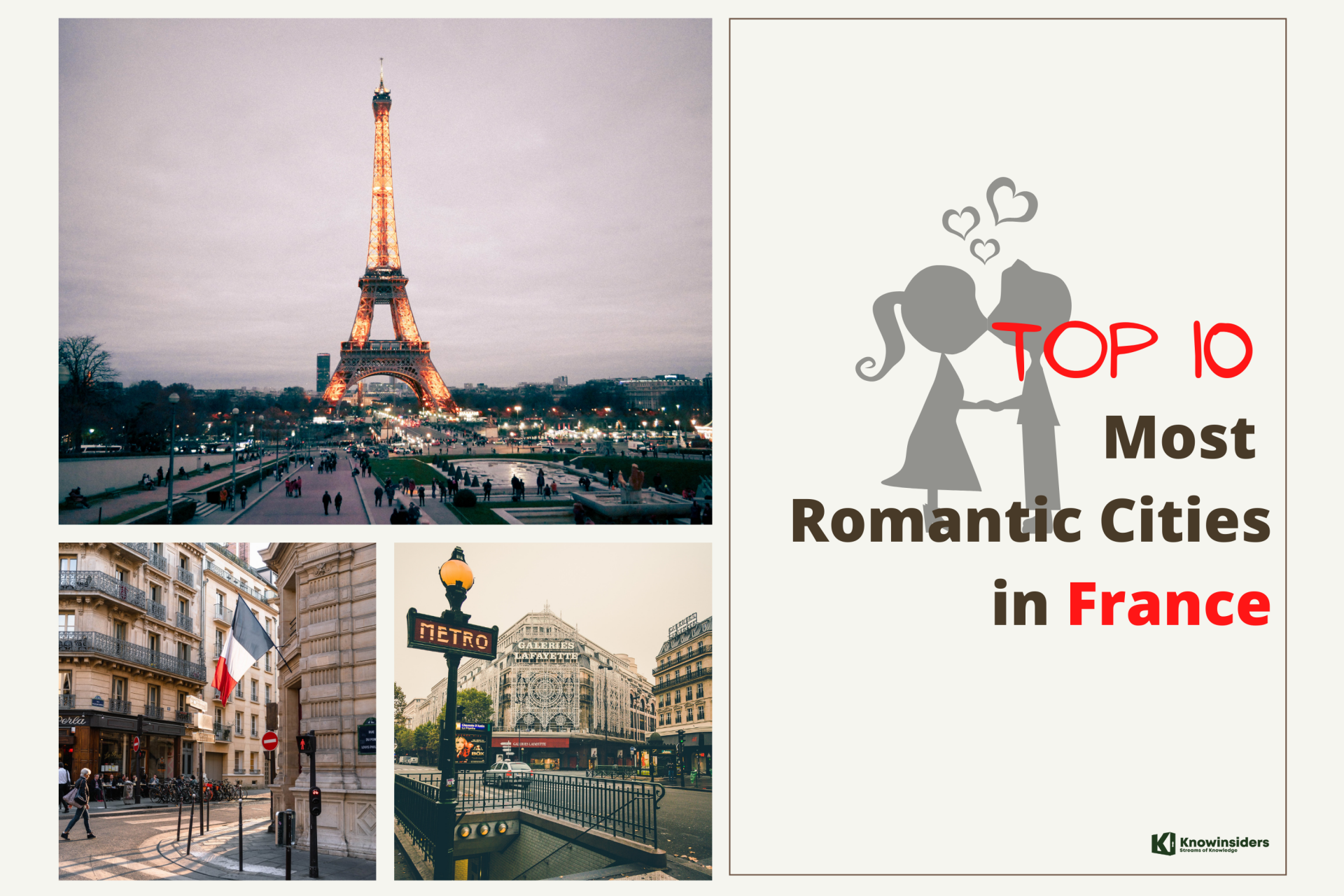 Top 10 Most Romantic Cities in France Top 10 Most Romantic Cities in France Are you looking for cities in France for a romantic trip? If so, you are in luck, as the country is full of idyllic landscapes ... |
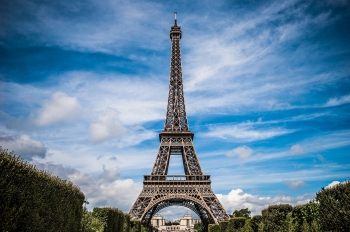 Top 12 Interesting Facts about France You may not Know Top 12 Interesting Facts about France You may not Know Is it true that France invented the hot air balloon? And is it really illegal to kiss on train platforms? Find out with these 12 ... |
 ONLY in FRANCE: 7 Strangest Things You've Never Seen ONLY in FRANCE: 7 Strangest Things You've Never Seen ONLY in FRANCE: France is the most romantic country in the world with picturesque destinations and delicious food and friendly people. Today, let discover 7 ... |
























